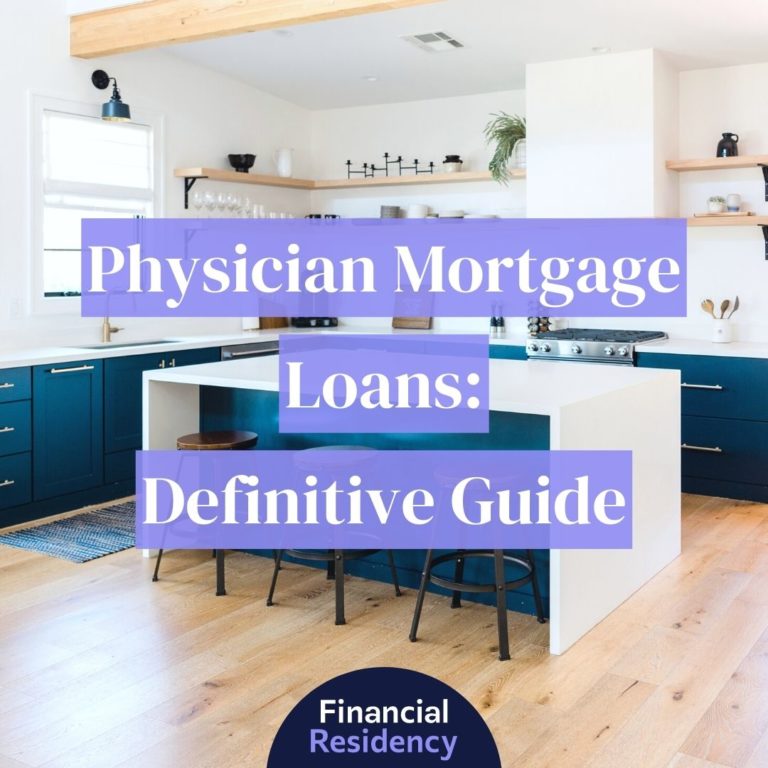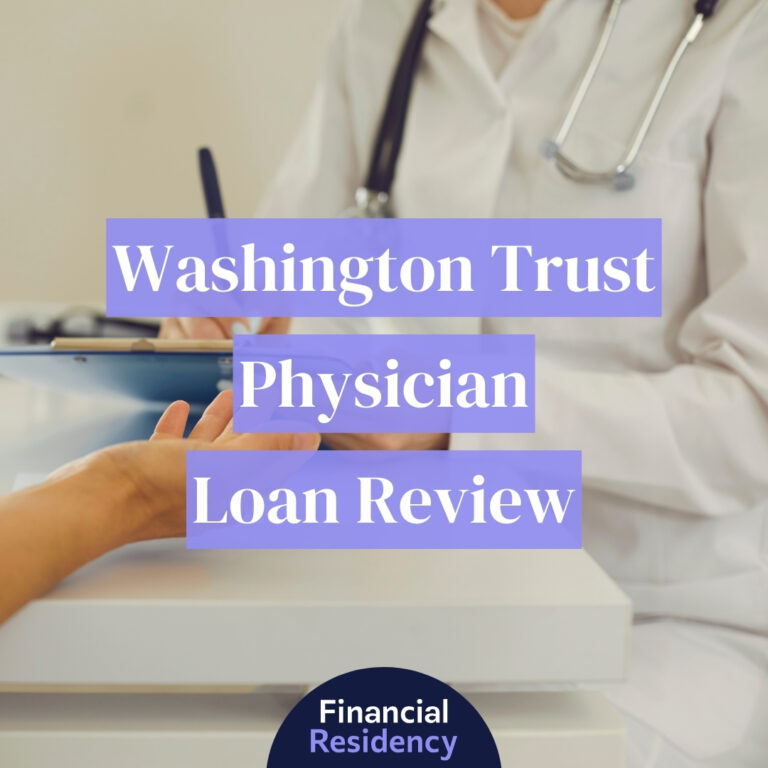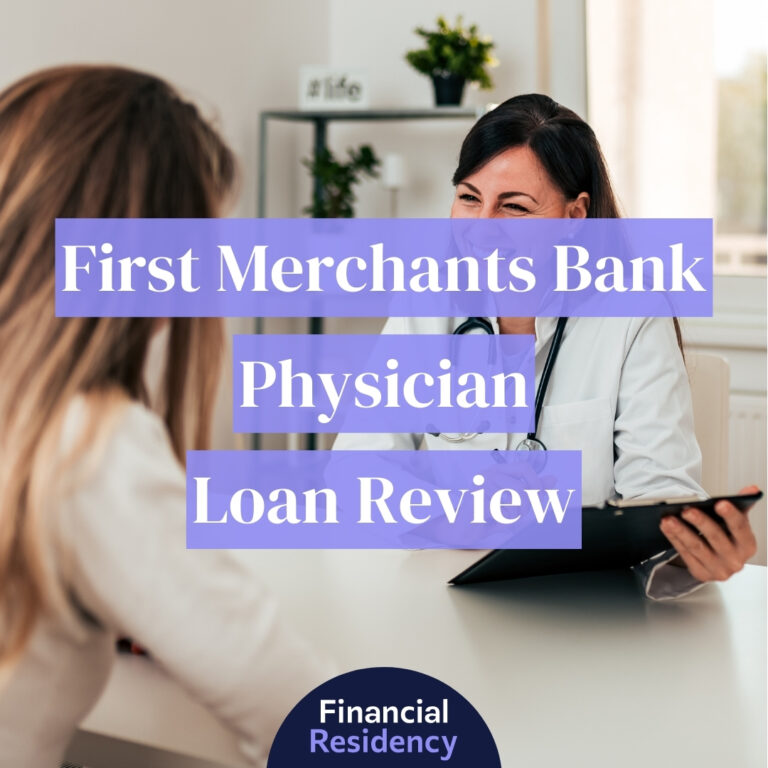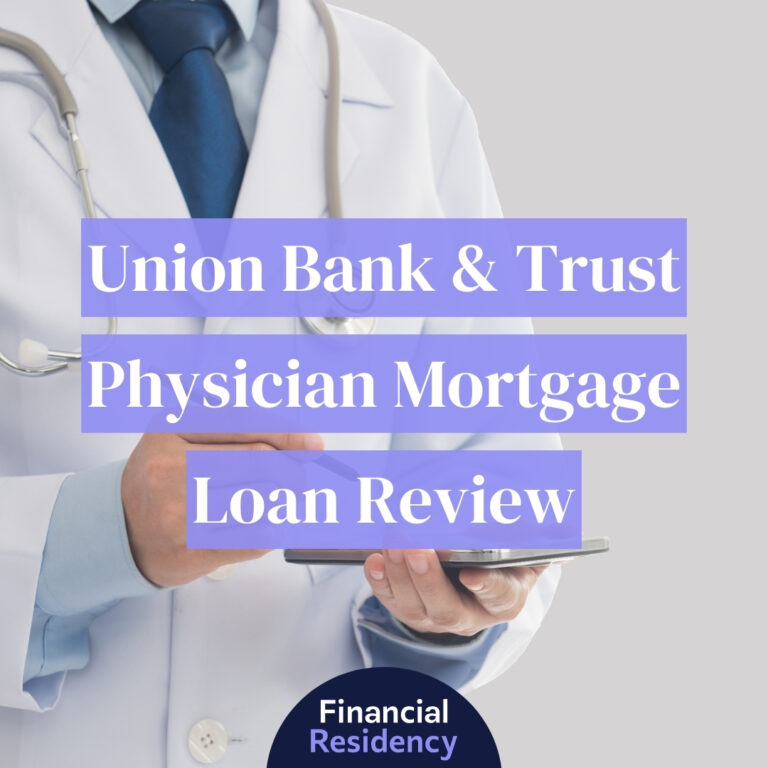Podiatrists are physicians. Like other physicians, they complete a rigorous undergraduate program, followed by four years of medical school, and three years of residency.
After nearly 11 years of education, these physicians will often start earning six-figure salaries on par with the nationwide median of $145,840, but they can graduate with debt as high as $300,000––just from podiatrist school.
Even the most financially prudent early-career podiatrists can find themselves leagues away from their dream of homeownership when they look at the qualifications for a conventional mortgage.
But mortgage loans for podiatrists can make purchasing or refinancing a home with favorable terms a reality.
10 Best Podiatrist Mortgage Loan Lenders
Here are the top mortgage loans for podiatrists:
- Bank of America
- Flagstar Bank
- Fifth Third Bank
- Evolve Bank & Trust
- First Citizens Bank
- The Federal Savings Bank
- Huntington Bank
- First Horizon Bank
- TD Bank
- Truist
Discover The Best Lenders Answer just a few questions about your career, where you're buying, and how much you want to borrow. Our service will then show you the exact programs you're eligible for from vetted physician loan specialists who will guide you through every step of the process – obligation-free!
1. Bank of America
- BBB Grade: A+
- D. Power Score: 791
- State availability: All 50 states
Bank of America’s (BoA) physician loan program is available to medical doctors (MD), doctors of osteopathy (DO), dentists (DDS/DMD), optometrists (OD), and podiatrists (DPM), including current residents. Applicants will be asked to open an account or have an existing relationship with the bank.
Qualified borrowers have access to a maximum loan amount of $1.5 million. Loans up to $1 million can be secured without a down payment, but larger loans will require a minimum down payment of 10%.
Like many physician loan programs, BoA doesn’t require PMI, and student loans are often excluded from your DTI calculations.
Learn More:
2. Flagstar Bank
- BBB Grade: A-
- D. Power Score: 781
- State availability: AL, AZ, CA, CO, CT, FL, GA, ID, IL, IN, LA, MA, MI, NC, NJ, NM, NV, NY, OH, OR, RI, TX, UT, VA, WA, WI
Flagstar Bank is one of the most inclusive physician mortgage loan programs on the market. The Professional Loan program is open to the following high-income professionals:
- ATP Pilot
- Attorney
- Certified Public Accountant (CPA)
- Clinical Nurse Specialist
- Doctor of Dental Medicine (DMD)
- Doctor of Dental Surgery (DDS)
- Doctor of Ophthalmology (MD)
- Doctor of Optometry (OD)
- Doctor of Osteopathy (DO)
- Doctor of Pharmacy (PharmD)
- Doctor of Podiatric Medicine (DPM)
- Medical Doctor (MD)
- Medical Resident (Educational License)
- Nurse Anesthetist (CRNA)
- Nurse Practitioner (NP)
- Physician Assistant (PA)
- Registered Nurse (RN)
- Veterinarian (DVM)
The program is also available to H-1B visa and green card holders.
Borrowers must be within 10 years of beginning their careers and have a minimum credit score of 720 to be eligible for 100% financing.
Loans up to $1 million without a down payment, but a 5% down payment is required for loans up to $1.5 million. PMI is not required.
Flagstar Bank’s underwriters will use your income-driven repayment amount for student loans when calculating your DTI ratio.
All Flagstar Bank’s physician loan products are adjustable-rate mortgages (ARMs), which means the interest rate will fluctuate throughout the loan term.
If you don’t have sufficient cash reserves, interested party contributions and gift funds are allowed.
Learn More:
3. Fifth Third Bank
- BBB Grade: A+
- D. Power Score: 815
- State availability: OH, FL, GA, IL, IN, KY, MI, NC, SC, TN, WV
Fifth Third Bank offers two loan options geared toward new and established medical professionals.
Both physician mortgage loans are extended to the following degrees:
- MD
- DO
- DPM
- DDS
- DMD
- DVM
- OD
Residents, fellows, and new physicians can borrow up to $750,000 without a down payment, but you can borrow up to $1 million with a low down payment.
Established physicians can also borrow up to $750,000 without a down payment, but if you qualify for this program, you can borrow up to $2 million with a low down payment.
Anyone within the first year of training or residency is considered a new physician, but later career physicians are considered established.
Both programs exclude PMI requirements, but you may be subject to a slightly higher interest rate as a result. Fixed and adjustable-rate mortgages are available.
Borrowers can begin the process by filling out an application online. From there, a mortgage loan originator will guide you through every step of the home-buying process.
Learn More:
4. Evolve Bank & Trust
- BBB Grade: A+
- D. Power Score: N/A
- State availability: All 50 states
Evolve Bank & Trust offers specialized mortgage products to the following physicians in all 50 states:
- Chiropractors (DC)
- Dental Surgeons (DDS)
- Dentists (DMD)
- Medical Doctors (MD
- Nurse Anesthetists (CRNA)
- Nurse Practitioners (NP)
- Optometrists (OD)
- Pharmacists (RPH/PharmD)
- Physician’s Assistants (PA)
- Podiatrists (DPM)
- Veterinarians (DVM)
A variety of financing options are available, all of which exclude PMI. Loans up to $1 million don’t require a down payment. Loans up to $1.25 million require a small down payment of 5% and loans up to $1.5 million require a 10% down payment.
The program has a maximum loan amount of $2 million, which will require a 15% down payment.
Rate discounts may be available, but it will depend on your credit profile and existing market condition.
You can even close on your home up to 90 days before you start work with a signed employment contract.
5. First Citizens Bank
- BBB Grade: A
- D. Power Score: 838
- State availability: AZ, CA, CO, FL, GA, KS, MD, MO, NE, NV, NM, NC, OK, OR, SC, TN, TX, VA, WA, WV, WI
First Citizens Bank offers two mortgage loan programs tailored to medical professionals. Both programs are open to the following degrees:
- CRNA
- CRNP
- DDS
- DM
- DMD
- DO
- DPO
- DPT
- MD
- PA
To qualify, you’ll need a minimum credit score of 700, a valid employment contract, or at least three years of tax returns. You’ll also be required to enroll in AutoPay from a First Citizens Bank account.
Borrowers have two options to purchase or refinance a primary residence, a 100% mortgage, and an 80/20 mortgage. Both options offer 100% financing. A 100% mortgage is a straightforward loan program where you make one monthly payment over a term of 15, 20, or 30 years.
An 80/20 mortgage allows you to split your financing across two loans. The first loan is a mortgage for 80% of the home’s purchase price and the second loan is a home equity line of credit. This option requires you to make two separate monthly payments, but it can allow you to build equity quickly.
With either option, you won’t have to prepare for a down payment or PMI, but you will need to have sufficient cash reserves for closing costs.
6. The Federal Savings Bank
- BBB Grade: A+
- D. Power Score: N/A
- State availability: All 50 states
The Federal Savings Bank also offers specialized home loans for medical professionals in the following areas:
- Doctor of Dental Science (DDS or DMD)
- Doctor of Medicine (MD)
- Doctor of Osteopathic Medicine (DO)
- Doctor of Pharmacy (PharmD)
- Doctor of Podiatric Medicine (DPM)
- Doctor of Veterinary Medicine (DVM)
- Nurse Anesthetist (CRNA)
- Nurse Midwife (APRN)
- Nurse Practitioner (NP)
- Optometrist (OD)
- Physician Assistant (PA)
- Psychologist
Qualifying medical professionals can borrow up to $2 million to purchase or refinance a primary residence without worrying about PMI.
Deferred student loans will be excluded from DTI calculations. Sellers may pay up to 6% of your closing costs and you can accept gift funds from your immediate family members.
If you have a signed employment contract, you can close on your home up to 90 days before you begin working, which can allow you to settle comfortably into your home before beginning your next job.
Learn More:
7. Huntington Bank
- BBB Grade: A+
- D. Power Score: 821
- State availability: AR, CO, CT, DE, FL, GA, ID, IL, IN, IA, KS, KY, ME, MD, MA, MI, MN, MO, MT, NE, NH, NJ, NM, NC, ND, OH, OK, OR, PA, RI, SC, SD, TN, UT, VT, VA, WA, WV, WI, WY
Huntington Bank is open to dentists, medical doctors, veterinarians, ophthalmologists, and podiatrists.
Loans may be used to purchase or refinance a single-family home, duplex, townhouse, or condominium.
Cash-out refinances are limited to $250,000 and non-warrantable condominiums are limited to 90% financing.
You can finance up to $1 million without a down payment. Loans between $1 million and $1.25 million can be secured with just a 5% down payment, but loans up to $2 million will require at least 10%.
You’ll need a credit score of at least 700 to qualify for 100% financing, but lower credit scores will be considered with a 10% down payment.
Student loans deferred for 12 months or more will be excluded from DTI calculations. If your student loans aren’t deferred, you can use your income-driven repayment amount.
Huntington Bank is even generous with other debts. It will approve borrowers with DTI as high as 50%.
You can choose between fixed and adjustable-rate mortgage products with loan terms of up to 30 years.
Talk to a loan officer to find the option that works best for your finances.
Learn More:
8. First Horizon Bank
- BBB Grade: A+
- D. Power Score: 825
- State availability: AL, AK, FL, GA, LA, NY, NC, SC, TN, TX, VA
First Horizon Bank extends its physician mortgage loan program to medical doctors, doctors of osteopathy, oral surgeons, and podiatrists. H-1B visa holders are also eligible, but the program is not open to current medical residents.
You’ll need a 680 credit score to qualify for financing. You can secure up to $1.5 million without a down payment. The program has a maximum loan amount of $2.5 million with 90% financing.
It’s important to note that applying for a loan will automatically open a bank account for you.
The bank customizes this program to meet your needs, so information online is sparse. For this reason, we recommend contacting a loan officer to better understand your financing options.
Learn More:
9. TD Bank
- BBB Grade:
- D. Power Score: 837
- State availability: CT, DE, FL, ME, MD, MA, NH, NJ, NY, NC, PA, RI, SC, VT, VA
TD Bank’s Medical Professional Mortgage Program is open to practicing physicians (DPM, MD, and DO), dentists, oral surgeons, and licensed medical residents and fellows.
Medical professionals must be currently employed with a valid employment contract or self-employed for at least 2 years with demonstrated income proven through tax returns.
Loans may be used to purchase or refinance a townhouse, single-family homes, condominiums, and co-ops in a state where TD Bank operates.
Borrowers are eligible for loans up to $750,000 without a down payment, but you’ll need to put down between 5 and 10% for loans up to $1.5 million.
Fixed and adjustable-rate mortgage products are available. Student loans are considered differently than conventional mortgage programs, but you’ll still need to have a DTI ratio lower than 43%.
Learn More:
10. Truist
- BBB Grade: A+
- D. Power Score: N/A
- State availability: AL, FL, GA, IN, KY, MD, NJ, NC, OH, PA, SC, TN, TX, VA, WV
Truist is a relatively new mortgage lender, but it offers an attractive physician mortgage loan program for medical doctors, dentists, and podiatrists within the first 15 years of their careers.
Like First Horizon Bank, Truist seems to prefer interested borrowers to contact them directly for more information, but we do know a few key details.
The program has a maximum loan amount of $2 million.
The program determines your financing options based on the number of years you’ve been practicing. Newer physicians within 10 years of beginning their careers can qualify for 100% financing, but doctors who have already been practicing for a decade need to put down at least 10%.
Learn More:
What is a Mortgage Loan for Podiatrists?
A podiatrist mortgage is another name for a physician loan program. Physician loan programs are offered by mortgage lenders, banks, and credit unions as a way to attract the business of high-income professionals.
As such, these lenders are often willing to make concessions that can make it easier to qualify for a mortgage.
The biggest concessions are employment history, down payment, and PMI:
- Employment: Qualified borrowers can be approved for a physician home loan with a signed employment contract and a small down payment.
- Down Payment: It’s typical to see down payment options between 0 and 5%, but some programs may require 10–15% depending on your loan amount.
- No PMI: Physician mortgage loans waive private mortgage insurance (PMI)––an additional monthly fee often required when you have less than 20% home equity. PMI can add thousands of dollars to your mortgage payments over the lifetime of your loan, but physician loans reduce these costs.
You may be a great candidate for a podiatrist mortgage if you meet the below eligibility requirements:
- A minimum credit score of 680–700
- Qualifying medical degree and license
- Intent to purchase a primary residence
- Sufficient cash reserves for a down payment and closing costs
- Two years of income history or proof of a signed employment contract
- Student loan debt that screws your debt-to-income (DTI) ratio above 43%
Physician mortgage loans are available as adjustable and fixed-rate products, but it typically comes down to your credit profile. For this reason, physician loans may not be the best choice for you if you have a low credit score.
However, many loan officers and specialized programs can help with credit repair if you don’t yet meet those criteria. One of the biggest benefits of physician loan programs is the generosity of their DTI calculators.
Nearly all physician loan programs will exclude student loan debt or provide more lenient calculators for other debts due to the lower likelihood of physicians defaulting on a loan and the higher likelihood of future student loan forgiveness compared to the general population.
Physician loans are typically exclusive to the purchase or refinance of an owner-occupied residence. As such, it won’t be a great option for physicians interested in a second home or investment property.
Learn More:
Pros and Cons
Like any financial decision, there are pros and cons of podiatrist mortgage loans.
It’s important to review both sides, so you can make an informed decision about the best physician home loan program for you.
Pros
- Relaxed debt-to-income ratio: Physician home loan DTI calculators will often exclude deferred student loan debt or use your income-driven repayment amount, which can make it easier to qualify.
- Refinance: Physician home loans can be used to purchase or refinance a primary residence.
- Buy with an employment contract: Doctor mortgage loans often accept signed employment contracts as proof of earning potential, so you can purchase a home before you start working.
- Low down payment: Doctor mortgage loans have low down payment options, often accepting as little as 0–5% down.
- Not restricted by traditional loan limits: Physician mortgage loans are non-confirming loans, so you can borrow significantly more than a conventional mortgage.
- No PMI: Nearly all physician loan programs don’t require monthly private mortgage insurance, regardless of your down payment amount.
- Guided home-buying process: Physician loan officers intimately understand the unique needs of medical professionals, so they’ll work with your schedule and finances to help you purchase a home you love.
Cons
- High loan amount: Physician loans can have very high monthly payments compared to conventional mortgage programs.
- Adjustable-rate mortgages: Many doctor mortgage loans are adjustable-rate mortgages, which can make it harder to budget for your monthly loan payments over the term.
- Podiatrists aren’t always eligible: Podiatrists aren’t included in all physician home loans, so it’s important to read the fine print carefully and discuss your financing options with a loan officer.
- Closing costs: Mortgages for podiatrists can reduce a lot of the early costs of homeownership, but you will most likely still be responsible for closing costs.
- Residence restrictions: Specialized home loans often have residence restrictions, most notably, the property will have to be your primary residence.
- 700 credit score required: To compensate for their more lenient requirements in other areas, physician mortgage loans often require a minimum credit score of 700 to qualify for 100% financing.
Other Home Loan Options for Podiatrists
Physician mortgage loans aren’t the only option for podiatrists. We recommend reviewing all your options to make sure you’re making the choice that best fits your needs.
Below are a few of the other mortgage loans for podiatrists.
| Loan Type | Quick Info |
| Conventional Loan (most common mortgage option) |
Minimum Credit Score: 640 Minimum Down Payment: 3% Maximum DTI ratio: 43% Interest: Fixed or variable Open to: Anyone who qualifies Fees: PMI with less than 20% down Property types: Any |
| FHA Loan (sponsored by Federal Housing Authority, serviced by private lenders) |
Minimum Credit Score: 500* Minimum Down Payment: 3.5% Maximum DTI ratio: 43% Interest: Fixed Open to: Anyone who qualifies Fees: Upfront funding fee of 1.75% Property types: Primary residences that meet FHA minimum standards |
| USDA Loan (sponsored by U.S. Department of Agriculture, serviced by private lenders) |
Minimum Credit Score: 640 Minimum Down Payment: N/A Maximum DTI ratio: 41% Interest: Fixed Open to: Low to moderate-income families in rural areas Fees: Annual fee of 0.35% Property types: Single-family homes used as your primary residence |
| VA Loan (sponsored by Department of Veteran Affairs, serviced by private lenders) |
Minimum Credit Score: N/A Minimum Down Payment: N/A Maximum DTI ratio: 41% Interest: Fixed or variable Open to: Active duty military and veterans Fees: Upfront funding fee of 1.65% Property types: Any property where at least 50% remains owner-occupied for three years |
| 80/10/10 Mortgage (Finance 80% of purchase cost, take out 10% home equity loan, put a 10% down payment) |
Minimum Credit Score: 640 Minimum Down Payment: 10% Maximum DTI ratio: 43% Interest: Fixed or variable Open to: Anyone who qualifies Fees: N/A Property types: Any |
*In general, FHA lenders prefer borrowers with a minimum credit score of 580, but lower credit scores may qualify with a 10% down payment.
Frequently Asked Questions
Are there any federal programs for podiatrists?
There aren’t any federal programs specifically designed for podiatrists interested in purchasing a home, but Public Service Loan Forgiveness (PSLF) can be an option for physicians with high student loan debt.
PSLF will forgive the remaining balance of your Direct Loans who work full-time for a non-profit or government organization and have been on an income-driven repayment plan for at least 120 months.
For physicians who don’t meet the criteria for PSLF, a physician home loan can help cut down on the initial purchase costs so you can continue making payments without sacrificing your dreams of homeownership.
What do mortgage loans for podiatrist cost?
The cost of a mortgage for a podiatrist can depend on the loan program, your loan amount, interest rate, and a variety of other factors. In general, you’ll be required to place a down payment between 0–15%, plus any applicable fees and closing costs. Closing costs are typically between 3–6% of the total loan amount.
Do podiatrist mortgage loans have higher interest rates?
Podiatrist or physician loans may have higher interest rates if your credit score is lower than 700 or if you have other risk factors discovered in underwriting. Some lenders may offer competitive interest rates to borrowers who meet all the necessary criteria, but we recommend shopping around for a mortgage loan that best fits your budget.
Higher interest rates will result in higher loan payments, so it’s important to consider all your financing options before making a final decision. With that said, refinancing is often an option when interest rates come down.
What is the maximum mortgage amount for podiatrists?
There isn’t a maximum mortgage amount for podiatrists. If you choose a conforming loan option, you’ll likely be subject to a limit of $726,200. Non-conforming loans, like mortgage loans for podiatrists, aren’t beholden to the same limits.
In some cases, you can borrow as much as $3.5 million with a low down payment. Many physician home loans will provide up to $750,000 in financing with zero money down.




